We are closing this coronavirus live blog now. Please follow our rolling global coverage of the pandemic on our new blog.
US infections reach new high as Australian state eases restrictions – as it happened
WHO says virus spreading fast despite vaccine progress; French infections rise to 2.29m; Brazil reports 627 new deaths. This blog is now closed. Follow our new global coronavirus blog here
Sat 5 Dec 2020 20.15 EST
First published on Fri 4 Dec 2020 18.16 EST- NSW reports no locally acquired cases
- California issues stay-at-home order for two most populous regions
- Fast-tracked vaccine approval could loosen UK Covid restrictions before March
- Turkey reports record daily death toll
- Summary
- UK Labour leader Keir Starmer is self-solating
- Iran’s total death toll from coronavirus surpassed 50,000
- Doctors in England have been told to start staffing Covid-19 vaccination centres by mid-December
- Germany records 23,318 new Covid cases
- Victoria set to establish 'Covid normal'
- Summary
- No new coronavirus cases reported in South Australia for seventh day in a row
- Covid-19 the leading cause of US deaths
- NSW records no new locally acquired cases of Covid-19
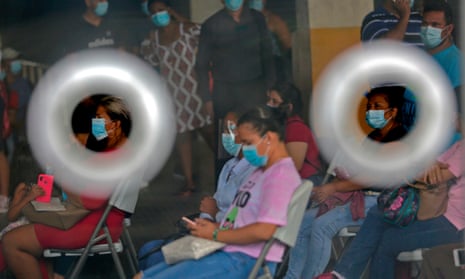
Live feed
- NSW reports no locally acquired cases
- California issues stay-at-home order for two most populous regions
- Fast-tracked vaccine approval could loosen UK Covid restrictions before March
- Turkey reports record daily death toll
- Summary
- UK Labour leader Keir Starmer is self-solating
- Iran’s total death toll from coronavirus surpassed 50,000
- Doctors in England have been told to start staffing Covid-19 vaccination centres by mid-December
- Germany records 23,318 new Covid cases
- Victoria set to establish 'Covid normal'
- Summary
- No new coronavirus cases reported in South Australia for seventh day in a row
- Covid-19 the leading cause of US deaths
- NSW records no new locally acquired cases of Covid-19
South Korea on Sunday reported 631 new coronavirus cases, the highest in nine months, ahead of an expected government decision on whether to further tighten social distancing curbs, Reuters reported.
After implementing tighter restrictions on Saturday, the government is to decide on Sunday whether to impose new measures in a country that had seen initial success through aggressive contact tracing and other steps.
The new cases bring the country’s tally to 37,546, with 545 deaths, the Korea Disease Control and Prevention Agency reported.
Many of the recent cases have been centered in the capital city of Seoul, which on Saturday launched unprecedented curfews, shuttering most establishments and shops at 9 pm for two weeks and cutting back public transportation operations by 30% in the evenings.
NSW reports no locally acquired cases
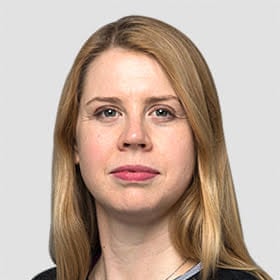
The daily health update for the Australian state of New South Wales has just landed and there have been no new locally acquired cases in the 24 hours to 8pm last night. Five cases were found among overseas travellers in hotel quarantine. Testing numbers were slightly lower, as tends to be common on the weekend: 9,827 tests, compared with 11,953 in the previous 24 hours.
However investigations continue into last week’s locally acquired case. From NSW Health:
“Investigations continue into the source of the recent COVID-19 case who works at a Sydney quarantine hotel complex. As reported on Friday afternoon, the viral genome sequence from the case does not match the virus strains seen in recent clusters in Australia and may be of United States origin.
“The ongoing investigations are exploring whether the source of infection was international aircrew who were self-isolating in the hotel at the time.
Testing of close contacts of the case is continuing, and no further positive results have been identified.”
Coronavirus infections across the US continue to rise as the country moves deeper into a holiday season when eagerly anticipated gatherings of family and friends could push the numbers even higher and overwhelm hospitals, reported Associated Press.
Vast swaths of southern and inland California imposed new restrictions on businesses and activities on Saturday as hospitals in the nation’s most populous state face a dire shortage of beds.
Restaurants must stop on-site dining and theaters, hair salons and many other businesses must close in the sprawling reaches of San Diego and Los Angeles, along with part of the Central Valley, including Fresno. Five counties in the San Francisco Bay Area were set to impose their own lockdowns Sunday.
A new daily high of nearly 228,000 additional confirmed Covid-19 cases was reported nationwide on Friday, eclipsing the previous high of 217,000 cases set the day before, according to data compiled by Johns Hopkins University.
Much of the nation saw surging numbers in the week after Thanksgiving, when millions of Americans disregarded warnings to stay home and celebrate only with members of their household.
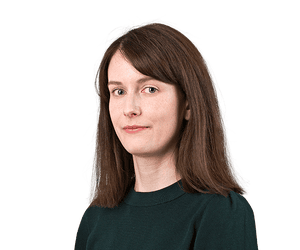
Hello, Rebecca Ratcliffe here in Bangkok, taking over from my colleague Jedidajah Otte in London. I’ll be bringing you the latest global pandemic news for the next few hours. If you have any news tips or feedback, please do get in touch on Twitter @rebeccarat or via email rebecca.ratcliffe@theguardian.com.

The Australian state of Victoria has announced a significant easing of its Covid-19 restrictions, opening up the state in time for summer.
Victoria, once the worst hit state in the country, has enjoyed 37 straight days free from Covid-19.
The result allowed premier Daniel Andrews to announce a relaxation of Covid-19 restrictions.
Victorians will, as of midnight local time, be allowed to have 30 visitors daily to their home from any number of other households, a doubling of the previous limit of 15.
Outdoor public gatherings can now also have 100 people from any household. Private sector offices can welcome back 50% of their employees, up from the current 25%, from Monday 11 January.
Public sector workplaces will bring back 25% of their employees on the same date, increasing to 50% on 8 February.
Weddings and religious gatherings are now only required to have one person for every two square metres, with no cap on the total number of people.
Bars, pubs, and cafes will also move to the one person per two square metres rule for indoor and outdoor venues from midnight, with no cap on the total number of patrons.
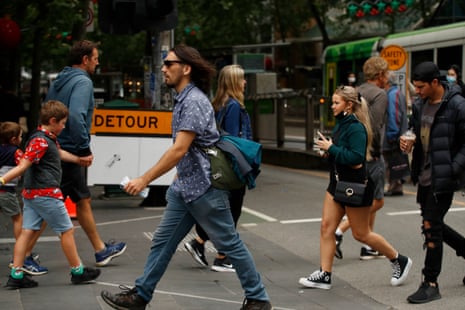
Standing service will now be allowed again, meaning patrons don’t have to be seated at bars to be served. Dance floors will be required to have one person for every four square metres. Mask wearing will still be mandatory in indoor shopping centres and public transport, and masks must still be carried by Victorians at all times.
“37 days in a row is an amazing achievement,” Andrews said. “And every Victorian should be proud but this thing is not done or over and can come back and if we don’t play our part and remain vigilant, then we do run the risk of everything that we have built being compromised. That is why we have all got to remain vigilant.”

In Australia, health and border authorities are investigating how two international passengers were allowed to fly from Sydney to Melbourne without quarantining, an act that has forced an entire planeload of domestic passengers into quarantine.
On Saturday, two travellers thought to be from Germany arrived in Sydney, but failed to quarantine for the required two weeks before flying to Melbourne.
Melbourne, one of Australia’s hardest hit cities, has emerged from the grips of a Covid-19 crisis to remain free from the virus for almost a month.
The travellers were stopped at Melbourne airport and are now completing their quarantine in Victoria, but their ability to travel freely from Sydney has prompted frustration within the Victorian state government.
Victoria’s health minister Martin Foley said he had sought an explanation from his New South Wales counterpart and had been assured there would be a “full investigation”.
Victorian health authorities have also advised any other passenger travelling on the flight to quarantine for two weeks.
The federal health minister, Greg Hunt, has also asked the Australian Border Force to investigate.
Britain’s Queen Elizabeth is expected to receive the Covid-19 vaccine within weeks, as public health experts believe this would encourage more people to take up the jab.
Both the 94-year-old Monarch and her husband Prince Philip, 99, will not get preferential treatment, but will instead “wait in line” during the first wave of injections reserved for the over-80s and care home residents, the Mail on Sunday reports.
Both are expected to accept the offer of the injection on the advice of their doctors.
The move is hoped to help the government’s attempts to combat misinformation about the vaccine spread by conspiracy theorists which could lead to a substantial proportion of the population refusing the jab.
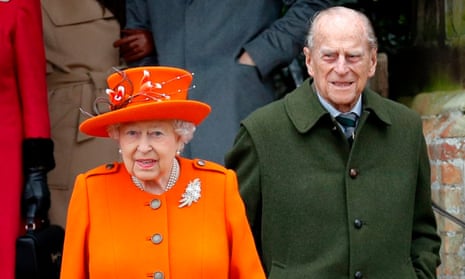
California issues stay-at-home order for two most populous regions
California’s two most densely inhabited regions and its agricultural breadbasket will be under stay-at-home orders by Sunday night as the Covid-19 pandemic strains hospitals in the most populous US state, officials said.
Designed to kick in when intensive care units in any of five regions have little remaining capacity, the order affecting Southern California and the San Joaquin Valley will close bars, hair salons and barbershops, and allows restaurants to remain open only for takeout and delivery service.
CA has issued a Regional Stay at Home order to #StoptheSurge of #COVID19 cases & prevent a strain on our health care system. This will help protect critical care for patients. Let’s do our part. Wear a #mask. Don’t gather. Physically Distance. #StayHome . https://t.co/qkLdqIfYn2 pic.twitter.com/7orih0FKix
— California DDS (@CaliforniaDDS) December 5, 2020
The shutdowns, which go into effect at 11:59 pm Sunday, are triggered by an order announced Wednesday by governor Gavin Newsom, a Democrat.
The San Francisco Bay Area will also go into lockdown on Sunday night, under a different set of orders announced Friday by officials there.
“We know that people are tired of the stringent measures, but they are the only weapons we have to combat the virus,” said Dr. Maggie Park, public health officer in San Joaquin County, in the state’s hard-hit farming region.
More than 25,000 new cases of Covid-19 were diagnosed in California on Friday, officials said on Saturday, a record since the pandemic began.
The state also recorded 209 deaths, bringing the total to 19,791, officials said.
Overall, the United States saw a record 228,407 new cases on Friday, and 2,568 deaths, according to a Reuters tally.

The Duke and the Duchess of Cambridge will begin a tour of Britain by train on Sunday, meeting frontline workers, care home staff and teachers to thank them for their efforts during the Covid-19 pandemic.
Britain has been the hardest hit country in Europe by the coronavirus, with over 60,000 deaths.
Prince William, Queen Elizabeth’s grandson and second-in-line to the throne, and his wife Kate will ride the Royal Train, travelling 1,250 miles across England, Scotland and Wales.
“The Duke and Duchess are very much looking forward to shining a spotlight on the incredible work that has been done across the country throughout this difficult year,” Kensington Palace said in a statement.
“[They are also looking forward] to sharing their gratitude on behalf of the nation for all those supporting their local communities ahead of the Christmas holidays.”


In Greece, health authorities say infection rates have continued to drop today, but not enough to ease the pressure on intensive care units in the country.
Confirmed coronavirus cases fell from 1,667 on Friday to 1,383 on Saturday, but there was only a marginal decrease in patients requiring intubation from 612 to 594 over the same 24-hour period. The death toll for both days was 98.
After faring comparatively well during the first wave of the pandemic, Greece has been hit by a surge of infections during the second wave that is proving far more difficult to handle.
With the hoped-for flattening of the curve taking much longer than anticipated, epidemiologists have increasingly sounded the alarm over easing restrictions despite the nation being under lockdown since 7 November. Heavy viral loads in the north of the country especially have put hospitals under extreme pressure.
Mathematical models predict the slow reduction rates continuing through to the end of the year, when daily infections are forecast to fall to around 770, still far above the 500 benchmark figure the centre-right government had set as a target to reopen the economy.
Environmental health engineer Dimosthenis Sarigiannis said it would be “premature” to relax restrictions when data showed confirmed coronavirus cases likely to hover around an estimated 1,475 on 8 December and 1,100 on 15 December.
“The case numbers are not in keeping with the goal set by the minister of health, Vassilis Kikilias, which was 500 cases to open the market,” Sarigiannis a professor at the Aristotle University of Thessaloniki told SKAI. “Our simulations show that if shops open and measures are not upheld, 15 to 20 days later we will see a resurgence. Consequently, any opening would be premature.”
The lockdown was extended through to 14 December this week. Speaking earlier on Saturday, Stelios Petsas, the government spokesman, said plans were afoot to set up 1,018 vaccination centres with the aim of immunising two million people a month.
The vaccination programme is scheduled to begin on 11 January, he told Mega TV on Saturday, warning that travel between prefectures in Greece over the Christmas holidays “seems very difficult”.
The latest data showed that the virus “has left urban centres and been transmitted to villages and small towns”, he said.
The coronavirus pandemic has made life difficult for a lot of people in the Czech Republic – and that includes St Nicholas, writes the Associated Press.
Every year on 5 December, Nicholas appears in costume on streets across the European country, joined by a winged angel and a masked devil rattling a metal chain.
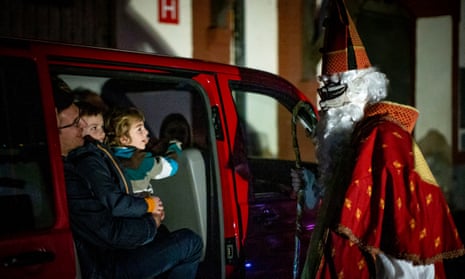
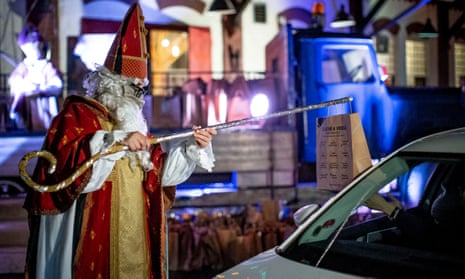
The trio goes door-to-door visiting children and giving them candy and small gifts, if they have been well-behaved. If not, the devil threatens to put the girls and boys in his sack and take them directly to hell - unless the angel intervenes.
The Czech health minister insisted the traditional trio needed to follow the government’s infection-control measures just like everyone else, which meant wearing masks and practicing social distancing.
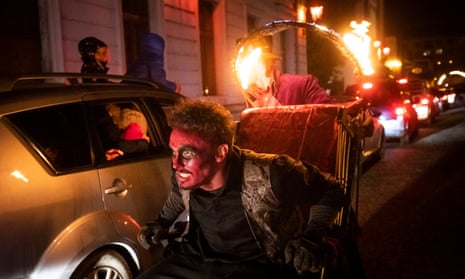
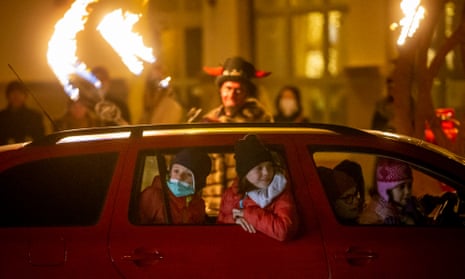
A new circus company in Prague offered another option on Saturday. The troupe set up an imaginary heaven and hell and invited families to come in cars to watch devils jumping, angels flying and Saint Nicholas waving.
A long line of cars at the La Putyka Circus base in Prague formed an eager audience for the drive-thru performance. The kids still hoped to find a stocking filled with chocolates, oranges and nuts on a window, but with the angel, devil and Nicholas in town, they know it won’t be long until Christmas.
Argentina has passed a one-time wealth tax in order to raise money to help pay for medical supplies and financial relief packages during the coronavirus pandemic.
The “millionaire’s tax”, which targets people with assets worth more than 200m pesos (£1.8m), passed in the Senate by 42 votes to 26 on Friday.
The South American country has recorded almost 1.5 million infections and nearly 40,000 deaths from the coronavirus, according to data from Johns Hopkins University.
Fast-tracked vaccine approval could loosen UK Covid restrictions before March
The British health secretary Matt Hancock said on Saturday that the coronavirus vaccine could bring the loosening of restrictions before the end of March.
In an interview with the Telegraph, Matt Hancock said he “can’t wait [...] to get back to living by mutual respect and personal responsibility, not laws set in Parliament”.
It marks a change in rhetoric and tone from Hancock, who until now has been regarded as one of the British government’s strongest proponents of the strictest possible measures.
He added: “There’s no doubt that having the vaccine early... will bring forward the moment when we can get rid of these blasted restrictions, but until then we have got to follow them. Help is on its way.”
The first vaccinations were being shipped to 50 locations around the UK this weekend, and millions of vaccine doses from Pfizer will be available in the country before the end of the year.
The government hopes to vaccinate more than half of the vulnerable people who need a jab by the end of February.

Brazil reported 43,209 additional confirmed cases of the novel coronavirus in the past 24 hours, and 664 deaths from Covid-19, the health ministry said on Saturday.
The South American country has now registered 6,577,177 cases since the pandemic began, while the official death toll has risen to 176,628, according to ministry data, in the world’s third worst outbreak outside the United States and India.
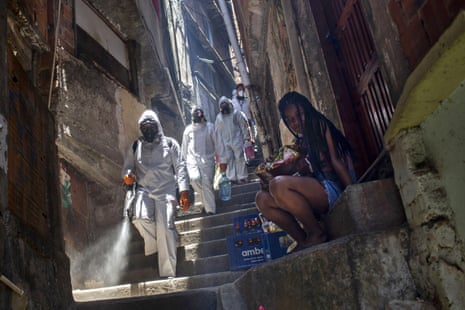
Kuwaitis hoping for reform went to the polls on Saturday in a parliamentary election overshadowed by Covid-19, with facilities laid on so citizens infected with the disease could vote in special polling stations.
The oil-rich emirate has enforced some of the strictest regulations in the Gulf to combat the spread of the virus, imposing a months-long lockdown earlier this year.
While some of those curbs have been eased, masks remain mandatory outdoors and temperature checks routine, AFP reports.
On Saturday, authorities set up security barriers around the country’s 102 polling stations to prevent gatherings, with designated lanes for entry and exit.
Mask-clad voters, who were also forced to wear gloves, were subject to temperature checks before entering the facilities where election officials stood behind glass barriers.
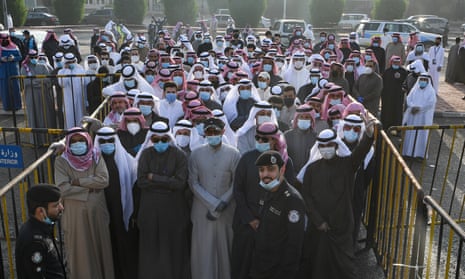
The polls were the first since the new emir, Sheikh Nawaf al-Ahmad Al-Sabah, took office in September following the death of his half-brother, Sheikh Sabah al-Ahmad Al-Sabah, at the age of 91.
Unlike other oil-rich Gulf states, Kuwait has a lively political life and its parliament, elected for four-year terms, enjoys wide legislative powers.
But with more than 144,000 novel coronavirus cases to date, including 889 deaths, the election campaign has been toned down.
Yet the normal themes have remained: promises to fight corruption and address youth employment, along with debates over freedom of expression, housing, education and the thorny issue of the stateless “bidoon” minority.
Some Kuwaitis have expressed their desire for change and reform in their country, where 70 percent of the 4.8 million population are foreigners.
Coronavirus infections across the US continue to rise as the country moves deeper into a holiday season, the Associated Press reports.
A new daily high of nearly 228,000 additional confirmed Covid-19 cases was reported nationwide Friday, eclipsing the previous high mark of 217,000 cases set the day before, according to data compiled by Johns Hopkins University.
The seven-day rolling average of Covid-19 attributable deaths in the US passed 2,000 for the first time since spring, rising to 2,011.
Two weeks ago, the seven-day average was 1,448. There were 2,607 deaths reported in the US on Friday.
Several states saw surging numbers in the week after Thanksgiving, when millions of Americans disregarded warnings to stay home and celebrate only with members of their household.
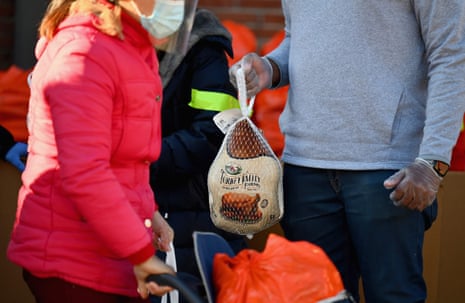
In Arizona, health officials’ public messaging took on a blunt tone Saturday as the state reported the second-highest daily increase since the pandemic’s start and the outbreak’s fall surge continued to elevate occupancy rates of increasingly stressed hospitals closer to capacity.
The Arizona Department of Health Services said in a tweet that people should wear masks “around anyone who isn’t a member of your household, even those you know and trust”.
The state’s 6,799 new confirmed Covid-19 cases trailed only the 10,322 new cases reported on Tuesday, which officials have said included data delayed by the Thanksgiving holiday weekend.
The week saw a total of four daily reports of over 5,000 additional confirmed cases.
North Carolina reported a record increase in confirmed coronavirus cases on Saturday, with 6,018 new cases.
“In less than a week, we went from exceeding 5,000 new cases reported in one day to exceeding 6,000,” said Dr Mandy Cohen, the state’s health secretary. “This is very worrisome.”
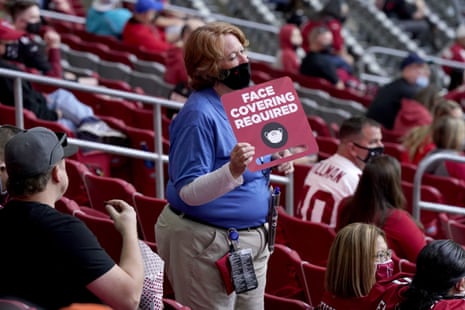
Indiana’s health department said Saturday that 7,793 more people in the state had been diagnosed with COVID-19 over the previous day. And Oklahoma recorded 4,370 newly reported coronavirus cases Saturday, with the state’s seven-day rolling average of new cases topping 3,000 per day.
Michigan reported 9,854 new confirmed cases Saturday, up from more than 8,600 new cases Friday.
“We continue to be concerned about the potential implications of the travel we have seen in the past week with Thanksgiving, as well as social gathering related to the holidays,” said Dr. Adnan Munkarah, executive vice president and chief clinical officer for Henry Ford Health System in Detroit.
In Boise, Idaho, soldiers were triaging patients in the parking lot of an urgent care clinic revamped into a facility for coronavirus patients as infections and deaths surge there.
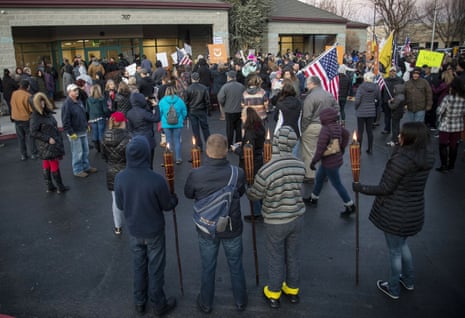
Health officials say Idaho’s attempt to hold the coronavirus in check is failing.
Officials fear a post-Thanksgiving surge of infections that could force difficult choices about what to do with patients when there’s no more room or anyone available to treat them.
California’s San Joaquin Valley, facing with a dire shortage of hospital beds, was placed under a sweeping new lockdown Saturday in an urgent attempt to slow the rapid rise of coronavirus cases.
Much of the state, including Southern California, is on the brink of the same restrictions.
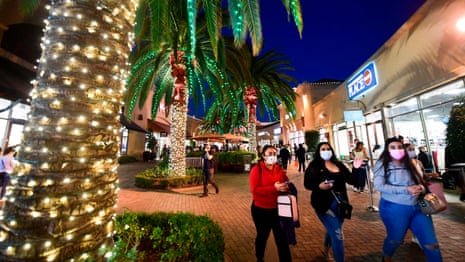

A further 315 people who tested positive for coronavirus have died in hospital in England, bringing the total number of confirmed deaths reported in hospitals to 42,194, NHS England said on Saturday.
Patients were aged between 32 and 103. All except seven, aged between 64 and 96, had known underlying health conditions.
The deaths were between 13 April and 4 December.
Twenty-two other deaths were reported with no positive Covid-19 test result.